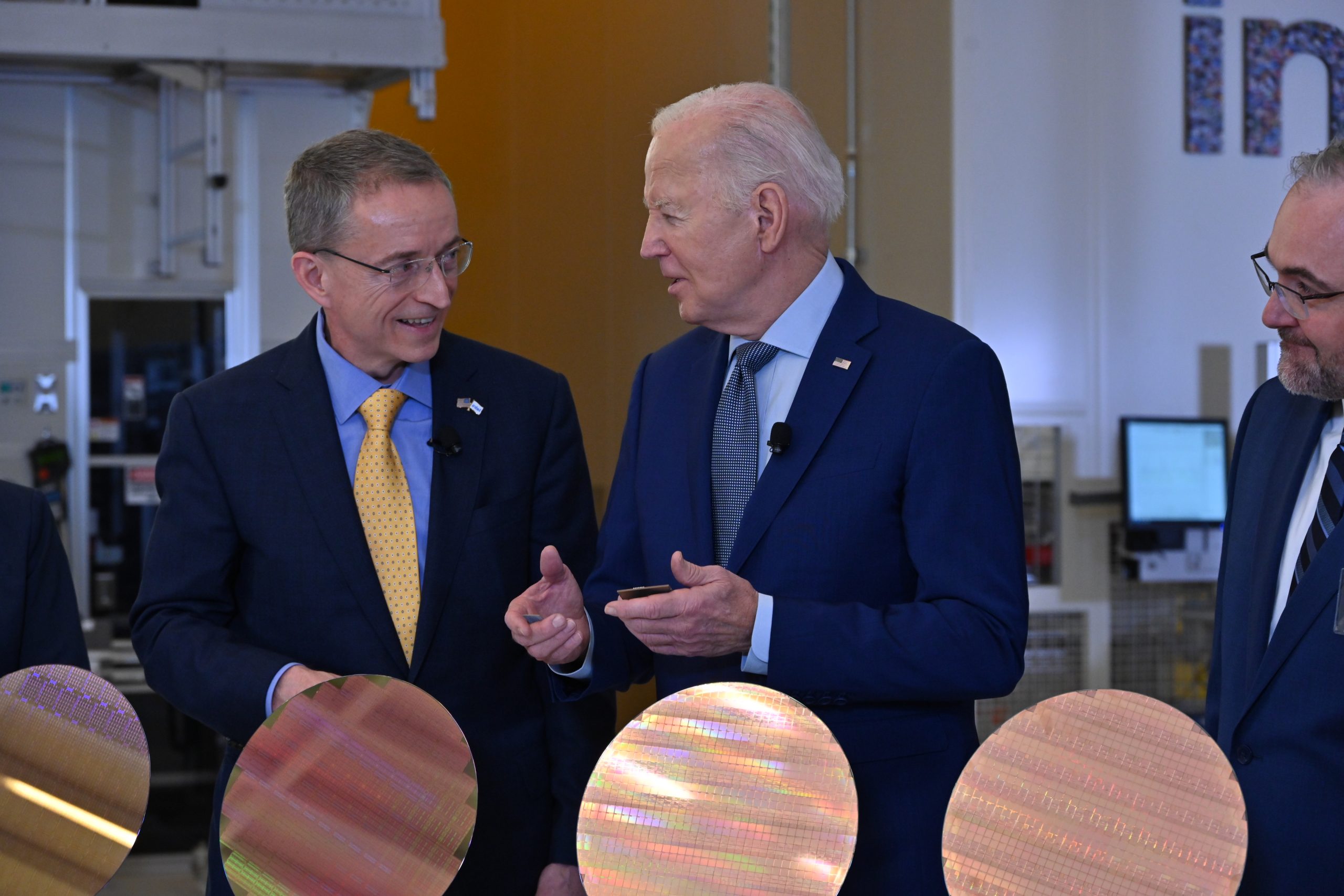[ad_1]
AWS to work with Intel on designing, manufacturing AI data centre chip in significant win for Intel manufacturing business
Intel and Amazon Web Services (AWS) are to coinvest in a custom chip for artificial intelligence (AI) computing, known as a fabric chip, in a major win for Intel’s manufacturing division.
The deal is part of a “multiyear, multibillion-dollar framework” and will use Intel’s 18A manufacturing process, the most advanced process available to outside clients, the companies said after the close of trading on Monday.
Intel’s foundry business is the key part of a turnaround effort launched in 2021, but to date the firm has been slow to line up high-profile customers.
Microsoft, a competitor to AWS in the cloud market, said in February it would, like AWS, use Intel for some in-house chips.

Cloud AI chip
AWS is the largest cloud infrastructure provider, and has been shifting from stock Intel chips to in-house designs manufactured by contract fabs such as TSMC, Intel’s main competition in the space.
The deal was one of several announcements from Intel following a three-day board meeting last week at which executives presented and discussed strategic options, following disastrous quarterly earnings disclosed last month.
Amazon has also hired Intel to package at least one of the data centre chips it already designs in-house.
Intel also said its manufacturing operations, known as IFS, would become a wholly owned subsidiary, making the unit more independent and allowing it to take outside capital.
The company began reporting IFS’ financial performance separately early this year.
Intel’s board has decided to sell a stake in programmable chip business Altera, the company said, as it looks at which businesses to shed and which to retain.

Plant construction
The company is to pause construction on new plants in Germany and Poland for two years, while pushing ahead with expansion in Arizona, New Mexico, Oregon and Ohio.
The firm also said it is eligible to receive $3 billion (£2.27bn) in direct funding to produce chips for the military, under a programme called Secure Enclave that aims to provide a domestically based supply of military and intelligence chips.
The programme is part of the US’ Chips and Science Act, which has already awarded Intel $20bn to expand domestic manufacturing.
Intel said in a memo to staff that it plans to begin notifying employees in mid-October if they are among the 15,000 the company plans to lay off.
[ad_2]
Source link


